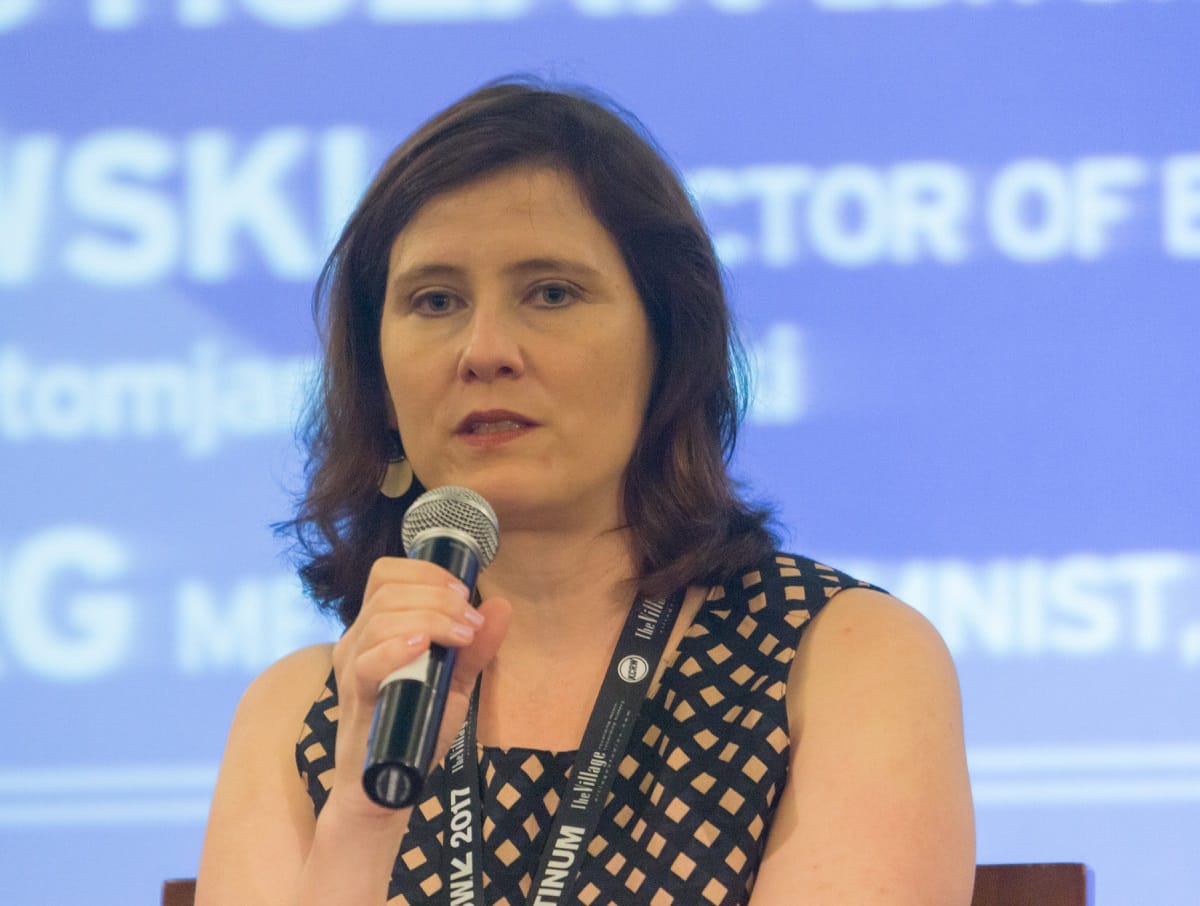Social Media Both a Cause of and Solution to Epidemic of ‘Fake News,’ Say Panelists at AEI Event
WASHINGTON, October 22, 2019 – At an American Enterprise Institute event on Tuesday, members of the media said that social media has been both a cause and a solution to the apparent epidemic of “fake news” that has not been fact-checked. People have gravitated towards partisan politics due to the di

WASHINGTON, October 22, 2019 – At an American Enterprise Institute event on Tuesday, members of the media said that social media has been both a cause and a solution to the apparent epidemic of “fake news” that has not been fact-checked.
People have gravitated towards partisan politics due to the distrust of informational authority, said American University Professor David Barker. Political party affiliation, he said, is not only a matter of preference but one of identity politics and value projection.
Factchecking has evolved from reviewing chain emails in 2007 to looking at social media feeds today, said Angie Drobnic Holan, editor at PolitiFact. Even journalists commonly rehash talking points from both side when presenting a story, she said.
Facebook’s partnership with fact-check organizations helps mitigate misinformation, Holan added. Using algorithms, the social media platform detects and flags content with unsubstantiated claims.
The information database has become an all-consuming enterprise, said Washington Post Fact Checker Glenn Kessler. The Post uses its own method rather than participating in Facebook’s program, he said. However, the publication recognizes that the program has made significant improvements in lowering the impact of “fake news” worldwide.
Videos are a good way of debunking misinformation, Kessler added. People generally watch more videos than reading articles, so that’s a good way of reaching out to consumers.
Some systems have found ways of notifying users if they share a post that has been factchecked, said David Sivak, chief web producer at the Washington Examiner. Sivak was also the former factcheck editor at the Daily Caller.
Social media has been key for improving fact-checking skills, he said. Twitter’s TweetDeck, for example, helps filter key words that are relevant to the current news cycle. When fact-checking social media posts, it’s important to focus on narratives and claims rather than on value judgments, as those are more difficult to prove.
Another concern that people have is how to trust those doing the fact-checking, Holan said. Besides Internet users who are digesting content for themselves, Poynter Institute’s International Fact-Checking Network has a Code of Principles for organizations that regularly publish reports on the accuracy of public statements.
Additionally, the organizations part of this coalition, said Sivak, undergo a yearly financial audit.
The primary role of these organizations, Kessler said, is to demystify Washington’s policy process.









Member discussion